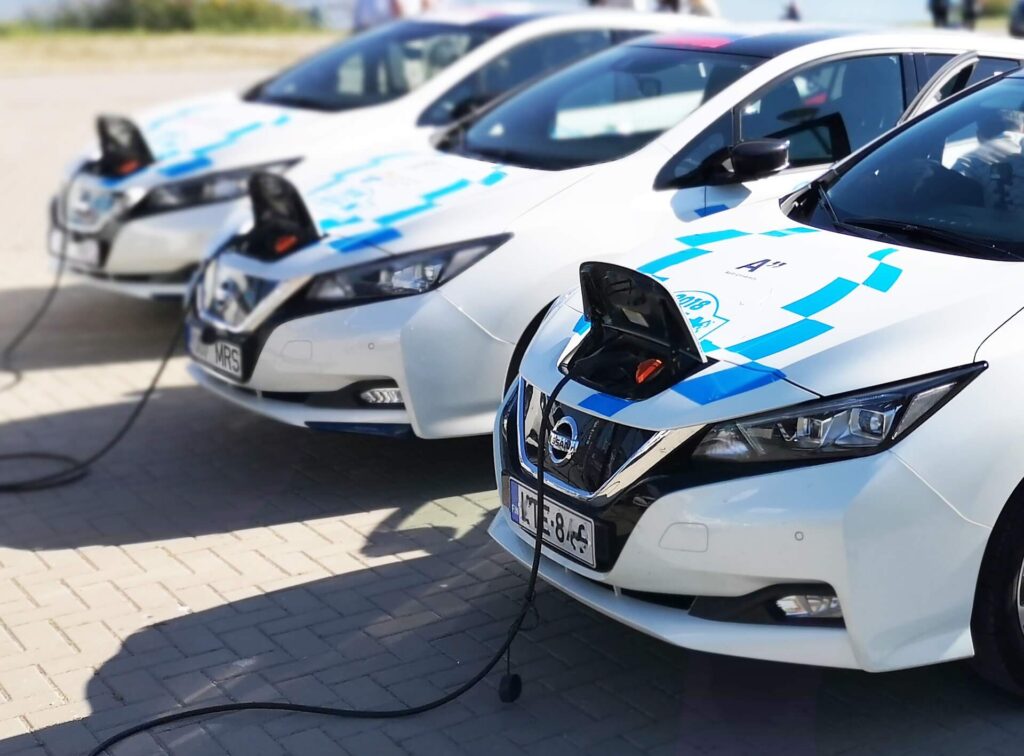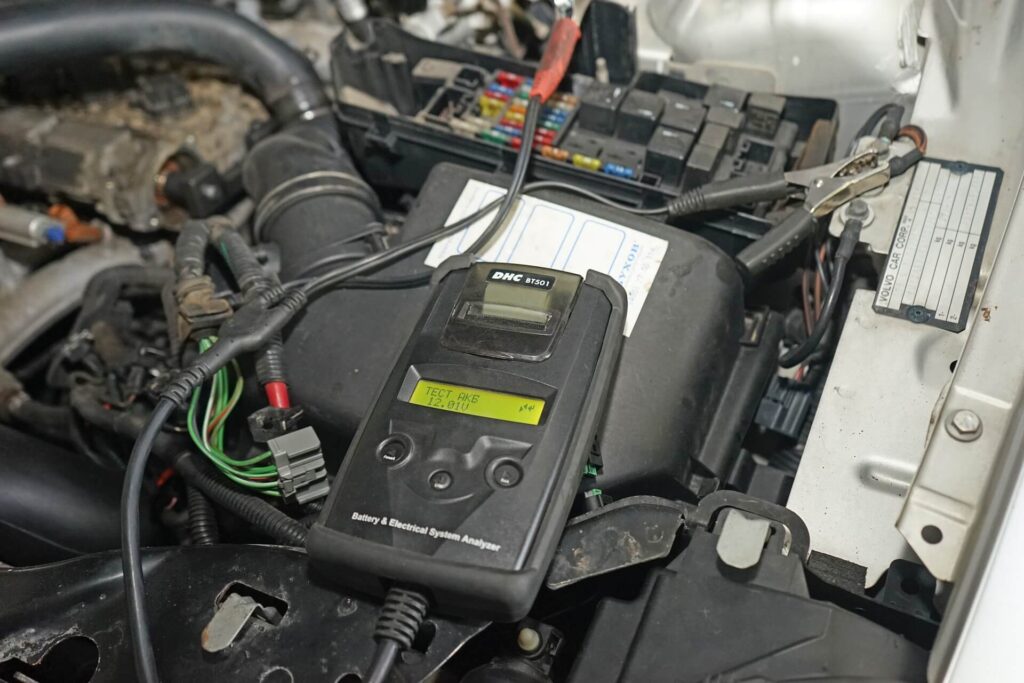A car battery or an automotive battery is a real-time rechargeable battery that is primarily used around the world to power motor vehicles. Its main purpose is to provide electric current to the electrically powered starting motor which in turn powers the chemically powered internal combustion engine which in turn propels the vehicles.
Now that we know what purpose a car battery serves, let’s see what a car battery contains and how it works? A car battery is an application of a wet cell battery. It has six cells with each one containing alternate plates made of a lead allow grid which is filled with sponge lead plates. Each of the cells is filled with a sulphuric acid solution which acts as the electrolyte.
Most car batteries work on a lead-acid chemical reaction to provide you with power. They use the SLI method to provide power to your car. SLI stands for starting, lighting, and ignition. These types of batteries provide short continuous bursts of energy to give power to different parts of your car.
Once the battery gives initial bursts of power to the engine, the alternator takes over and takes care of the rest.
How a battery gives current?
The sulphuric acid reacts with the lead dioxide plate which produces ions and lead sulfate. These ions react with the adjacent plate and produce hydrogen and lead sulfate. This results in the production of electrons that travel around the plates and produce electricity. This electricity travels out of the terminals and powers the lights of your car, turns on the engine, plays the radio, etc.
This is a reversible reaction which is mainly the reason how you can jump-start your battery by hooking it up to the battery of another car.
Now, that we know what a car battery is and how it works, let us address the main question behind this discussion; can you overcharge a car battery?
Can a Car Battery be Overcharged?
Yes, a car battery can be overcharged and it is a very common mistake that drivers and mechanics make. But compared with other problems that people may face with a car or a battery, overcharging is the least occurring problem with car owners.
There are different ways by which a car battery can be overcharged and the result can range from some minor adjustments to some very dangerous ones. The most probable solution that you can find for an overcharged car battery is replacing it because most of the time its components have been damaged so much that you would be better off having it replaced than trying to get it fixed.
Different Ways that battery can get overcharged:
The following are some of the ways by which a car battery can be overcharged.
-
Instances related to battery chargers
This is one of the most common reasons for overcharging a car battery because people often show carelessness while handling batteries.
Battery chargers are used when you don’t use your car for a lot of time and it sits idle, some instances can be due to bad weather like snow in winter or some other reason like you are going away for some time.
Now, when the time comes to sue the car, owners hook up the battery to battery chargers for longer periods than instructed. This overcharges the battery and ruins it.
Another reason that results in battery overcharging when dealing with battery charging is hooking up both of these incorrectly. The wrong combinations of wires or connections with the wrong nodes can cause the battery to charge or short circuit.
Another reason can be a faulty battery charger. A battery charger that has been in use for years might develop some flaws which might later own cause your battery to overcharge or get ruined.
-
Alternator Problems
Another common cause of battery overcharging is the alternator. An alternator constantly recharges your battery while it is powering your lights or radio during travel so that it doesn’t die out.
Now, if an alternator becomes old or becomes defective, it might not be able to do its work as efficiently and might damage the battery itself.
-
Voltage regulator
A voltage regulator keeps in check and keeps in limits the charge that is being sent back to the battery. If this regulator becomes defective, more than the required amount of charge might get to the battery and overcharge it.
What happens when a battery overcharges?
Now that we know how a battery might get overcharged, we will discuss what effects it can cause to the battery.
-
Battery life span
The main effect that overcharging has on a battery is that its life span will decrease. This is simply because if the components of a machine get damaged, it will not be able to perform as efficiently and will give lesser and lesser output over time, even when patched up.
-
Dead Battery
This is the most common output that you can get from a battery getting overcharged. Most batteries are designed in such a way that if overcharging is detected, they stop working altogether.
-
Battery swells and melts
Overcharging causes the battery to produce excess charge which produces excess heat. This heat ruins the battery as well as in some extreme cases, causes it to swell and melt as well.
-
Battery leaking and Exploding
Overcharging causes the battery to swell and melt at the same time. This swelling and melting of the battery can allow the liquid or the acid within to flow outside.
Moreover, on some rare occasions which can be deadly as well, these batteries can explode with the excess charge build-up. This can result in severe injuries and extreme cases may result in death as well if the person or the user is close to the battery when the event occurs.
Conclusion:
Now we know how a battery works and how it can get ruined from overcharging. So, now we can protect our battery from damage and use it to the full extent of its life and its efficiency.
Read Our Recent Buyer’s Guide:
- Best Deep Cycle Batteries for RV
- Optima Red Top Batteries Review
- The Top 10 Best Deep Cycle Battery Chargers
- The Best AGM Batteries That Are Worth Buying
- List 10 Best Deep Cycle Batteries That You Can Find!
- Top 10 Best Deep Cycle Marine Batteries We Totally Recommend
- Top 10 Best Car Batteries For Cold Weather That You Need To Consider
- Best Group 24 Batteries




Leave a Reply